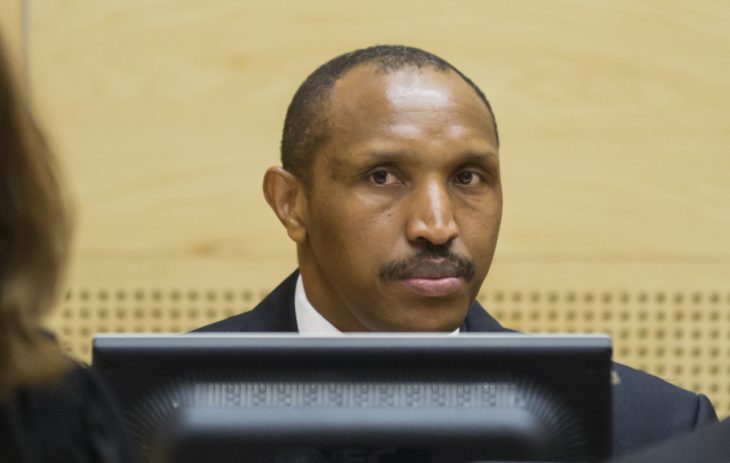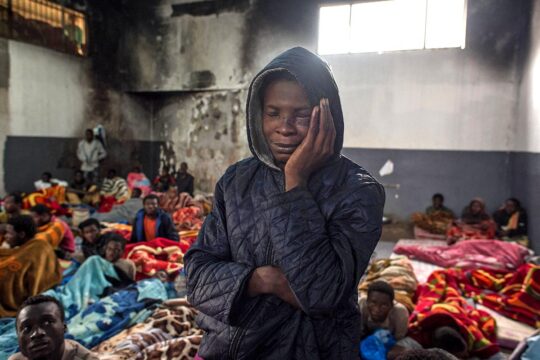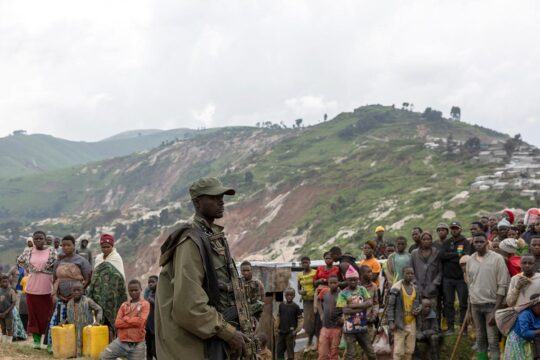It was a rich and varied week in transitional justice, with its high and low points.
In the Hague, the International Criminal Court (ICC) faced new difficulties in trying former Congolese warlord Bosco Ntaganda, who no longer wants to cooperate with the Court. Ntaganda, who has been in the ICC prison in the Netherlands for 36 months, is boycotting his trial. He has also gone on hunger strike to protest restrictions on his family visits, imposed by the judges because of his suspected attempts to intimidate witnesses through intermediaries. Ntaganda is accused of crimes against humanity and war crimes for murder, rape, sexual slavery, using child soldiers under 15, forced transfer of population, looting and destruction of property, committed in Ituri, eastern Democratic Republic of Congo (DRC) between 2002 and 2003.
The prosecution, however, says he is manipulating the Court and trying to take it “hostage”, writes our correspondent. “`Boycotting hearings cannot be considered a legitimate or legal means to protest the decision,` said prosecutor Dianne Luping, who asked the Court to impose sanctions, so that `the Accused does not take control of the hearings`.”
This trial is all the more difficult for the press and public to follow because most of the prosecution witnesses, alleged victims of Ntaganda, have testified behind closed doors. Justice needs to be seen to be done, as we know.
In another article co-published with Le Monde.fr, JusticeInfo.net looks back at one of the most flagrant fiascos in international justice, namely the experience of witness Espérance at the International Criminal Tribunal for Rwanda (ICTR). “At 15, she lost all those close to her in the anti-Tutsi genocide, some 60 members of her family including her parents,” writes JusticeInfo’s editorial advisor Pierre Hazan, who is author of a film report on the mistreatment of this Rwandan genocide survivor. “She herself only survived by a miracle. So when investigators from the International Criminal Tribunal for Rwanda (ICTR) came to find her, she agreed to testify, including about the multiple rapes of which she was victim. The Court promised her that her identity would never be revealed and she is referred to as `Witness TA` in ICTR documents.”
But her identity was revealed and, even worse, the ICTR let a defence lawyer question her in a salacious and humiliating way, whereas she only wanted justice. As Prosecutor Carla del Ponte said, “this justice remains abstract for the victims. At the end of the day, they considered that this justice which was supposed to be for them was an injustice”.
Also of note is an attempt by Burundi’s President Pierre Nkurunziza to get himself made President for life on the basis of a report by the National Commission for Inter-Burundian Dialogue published at the end of last month. This document, which is dubious to say the least, claims the majority of Burundians are opposed to limits on the number of presidential terms. For the opposition, the report reflects the hardline tendency in the ruling party and makes a negotiated peace in Burundi look even further away. The country has been in deep crisis ever since Nkurunziza was named his party’s candidate at the end of April 2015 for a third term that the opposition and civil society say is unconstitutional.
On a more positive note, JusticeInfo also looked at the efforts of Swiss NGO Geneva Call to promote norms of humanitarian law among Syrian rebels. “How can one convince these armed groups to respect norms that they see as far from the reality of war?” writes our correspondent. “The Swiss NGO thinks it has found part of the solution by concentrating on Islamic law, because `we cannot use norms that appear imposed`.”







